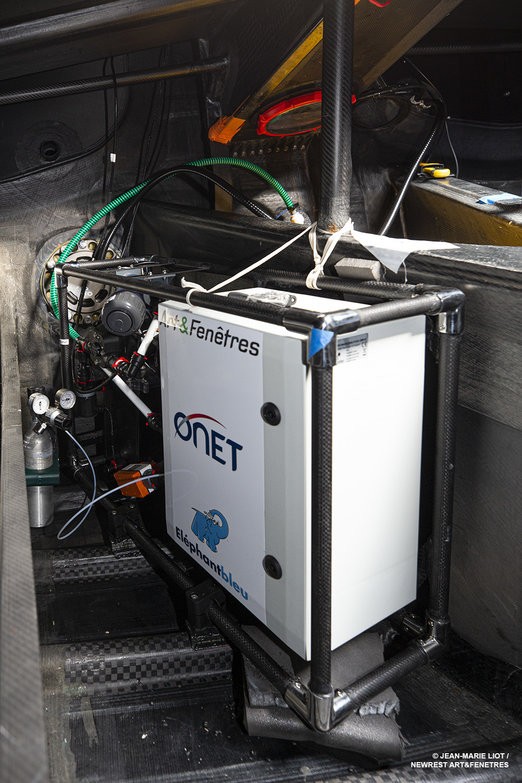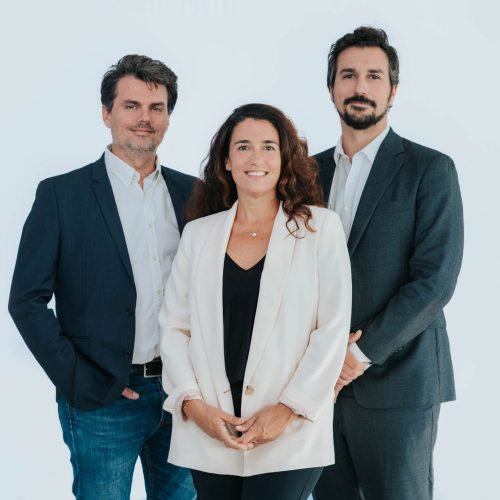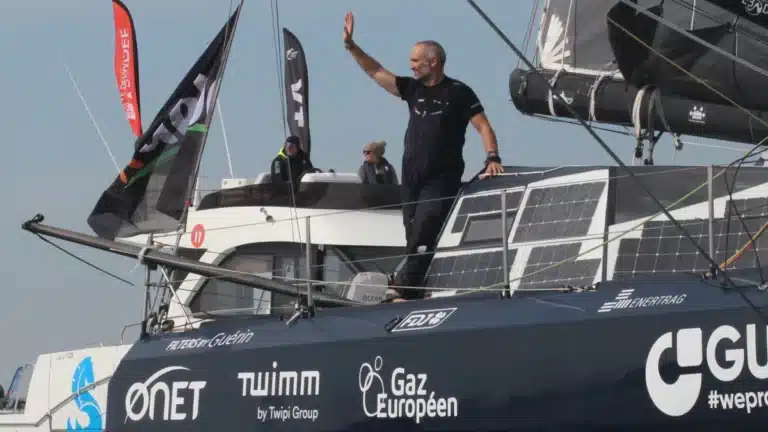End of Fabrice Amedeo's Jacques Vabre race: 1st data on the health of our oceans
Setting out from the port of Le Havre on October 27, skipper Fabrice Amedeo had very clear objectives in mind: to have the best race and deliver the 1st data on the state of our oceans. The target has been reached!
Fabrice Amedeo, a seasoned reporter and sailor, decided to put his passion for sailing to work for the preservation of the oceans and the planet. The installation of a sensor on his boat will enable him to measure, among other things, the micro-plastic content of the oceans, water salinity, CO2 levels and phytoplankton content.
The data collected along the race route, in places where scientific boats rarely pass, is destined for institutes such as Ifremer, Geomar, Max-Planck Institute and Jcommops. Sent in real time, this information will enable scientists to better understand climate change and the deterioration of our ecosystem.
The skipper's involvement in this project, which corresponds in every way to Onet's values, has led to a partnership over the next 3 years to finance the onboard sensor.
- - Onet Group
Fabrice Amedeo and Eric Péron: 9th in the Transat Jacques Vabre in the Imoca category
"I've arrived! As always, it was very emotional to see land again and set foot on it. And, as always, the desire to return, which remains intact, such are the magic of these moments at sea" comments Fabrice Amedeo.
On Monday, November 11, it was 5 hours, 16 minutes and 7 seconds before the crew of Fabrice Amedeo and Eric Péron crossed the finish line of the Transat Jacques Vabre after 14 days and 16 hours of sailing. After being ranked 10th, the skippers were finally rewarded with 9th place in Salvador de Bahia!
The first data from the on-board sensor also reach their destination
I had to get involved in a cause that was bigger than myself, and I found it: the preservation of the oceans and the planet, an "urgent" subject," he confides.
The first data extracted from the sensor have been sent to our scientific partners Ifremer, GEOMAR and Max Plank Institut.
These initial elements, essential for understanding the interaction between atmosphere and ocean, show that the sensor is working properly. The work is just beginning, with analyses to be carried out, followed by modelling, which will enable conclusions to be drawn when the time comes.
"Amotivating return for Fabrice: "I think it's absolutely fantastic to be able to continue racing with the same sporting objectives while sailing for the scientific community.

What are the initial findings?
Without going into the interpretation of the results, the scientists observed a number of interesting elements in the results recorded, and enriched their knowledge of the data to better understand them.
Continued sampling during the return trip
During the return trip, the oceanographic sensor installed on board the boat will resume its daily 24/24 sampling rhythm, but a new factor will be added to what has already been validated during the Transat Jacques Vabre.
As Fabrice Amedeo explained as he left the Baie de Tous les Saints: " I'm very happy to be going back the other way, this time with a suitcase of test tubes to take samples in situ every 24 hours, and the sensor that will produce data for the scientific community.
The yachtsman is thus taking a further step forward in his determination to use his boat and his ocean racing skills for the benefit of science, in order to gain a better understanding of the evolution of our planet and its oceans.




